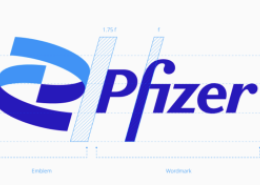Bococizumab SPIRE-2 Cardiovascular Outcome Study Fully Enrolled
Pfizer research program only one to assess role of PCSK9 inhibitors in reducing risk of cardiovascular events in high-risk patients without history of cardiovascular events
"Pfizer has been a leader in redefining the management of cardiovascular risk for decades, and we are applying our deep understanding of cardiovascular disease to the SPIRE Phase 3 program”
Pfizer Inc. today announced patient enrollment completion in the global SPIRE-2 cardiovascular outcome trial for its investigational agent bococizumab. SPIRE-2 is evaluating the efficacy and safety of bococizumab compared to placebo in reducing the risk of major cardiovascular events among approximately 10,600 patients at high risk for cardiovascular disease - including those without a prior history of cardiovascular events – who are on highly-effective statins or with documented statin intolerance.
The SPIRE-2 study is one of two cardiovascular outcome trials that are part of the SPIRE Phase 3 global clinical development program that will evaluate the investigational Proprotein Convertase Subtilisin Kexin type 9 inhibitor (PCSK9i) bococizumab in approximately 32,000 patients with high cholesterol. Many factors impact the duration of cardiovascular outcome studies, including that they are time-to-event trials, which can make it difficult to predict when the studies will accrue the required number of events. Based on current estimates, the SPIRE-2 study is expected to complete in the second half of 2017.
“Pfizer has been a leader in redefining the management of cardiovascular risk for decades, and we are applying our deep understanding of cardiovascular disease to the SPIRE Phase 3 program,” said James M. Rusnak, MD, PhD, Therapeutic Area Clinical Head for Cardiovascular and Metabolic Disease, Global Product Development. ”We have designed our cardiovascular outcome trials differently from other PCSK9i outcome trials to include both primary and secondary prevention patients at high risk for a cardiovascular event.”
The SPIRE program for bococizumab is the only PCSK9i research program explicitly assessing cardiovascular outcomes in a broad range of high-risk primary and secondary prevention patients - including those with diabetes, chronic kidney disease, peripheral vascular disease, familial hypercholesterolemia, and history of heart attack or stroke or cardiovascular revascularization procedures – with low-density lipoprotein cholesterol (LDL-C)≥100mg/dL, despite the use of highly effective statins or with documented statin intolerance.
In the multicenter, double-blind SPIRE-2 trial, patients with LDL-C ≥100 mg/dL or non-HDL-C ≥130 mg/dL were randomized to receive either bococizumab 150mg or placebo every two weeks in addition to highly-effective statins unless patients had documented statin intolerance. The primary endpoint in SPIRE-2 is time to first occurrence of a major cardiovascular event, which includes cardiovascular-related death, non-fatal heart attack, non-fatal stroke, and hospitalization for unstable angina needing urgent revascularization (i.e., heart bypass, angioplasty). The study is evaluating other endpoints as well, including the safety and tolerability of bococizumab.
About cardiovascular disease
Cardiovascular disease remains the leading cause of death worldwide.1 High LDL-C is a known modifiable risk factor for cardiovascular events such as heart attack and stroke.2,3,4,5 Despite the availability of highly effective lipid-lowering therapies, such as statins, many patients remain at high risk for cardiovascular events.6,7,8,9 Of note, in the U.S., more than 70% of heart attacks occur in patients without a previous cardiovascular event.10
About SPIRE
Pfizer has created SPIRE (Studies of PCSK9 Inhibition and the Reduction of vascular Events), an extensive research program to study bococizumab, its investigational PCSK9i. The SPIRE Phase 3 global clinical development program will include approximately 32,000 patients and consists of six lipid-lowering studies (SPIRE-SI, SPIRE-AI, SPIRE-HR, SPIRE-FH, SPIRE-LL and SPIRE-LDL) as well as two cardiovascular outcome studies (SPIRE-1 and SPIRE-2).
The lipid-lowering studies are evaluating the LDL-C lowering efficacy, safety, and tolerability of bococizumab in adult patients at risk of cardiovascular events, while the two cardiovascular outcome studies are investigating the ability of bococizumab to reduce the risk of cardiovascular events in a broad range of high-risk primary and secondary prevention patients, including those with diabetes, chronic kidney disease, peripheral vascular disease or familial hypercholesterolemia, in addition to those with previous cardiovascular events such as heart attack, stroke, or cardiovascular revascularization procedures.
Pfizer’s cardiovascular outcome program for bococizumab is the only PCSK9i research program explicitly assessing cardiovascular outcomes in high-risk primary and secondary prevention patients with an LDL-C ≥100mg/dL, despite the use of highly-effective statins or with documented partial or complete statin intolerance.
About bococizumab
Bococizumab is an investigational compound and has not received regulatory approval in any country.
Bococizumab is a PCSK9i being studied for its potential to lower LDL-C and improve cardiovascular outcomes in a broad range of high-risk primary and secondary prevention patients. It works by blocking the function of the PCSK9 protein, which interferes with the clearance of LDL-C, a leading known risk factor for heart disease.
More information about the bococizumab Phase 3 program can be found at www.clinicaltrials.gov.
About Pfizer Inc.: Working together for a healthier world®
At Pfizer, we apply science and our global resources to bring therapies to people that extend and significantly improve their lives. We strive to set the standard for quality, safety and value in the discovery, development and manufacture of healthcare products. Our global portfolio includes medicines and vaccines as well as many of the world's best-known consumer health care products. Every day, Pfizer colleagues work across developed and emerging markets to advance wellness, prevention, treatments and cures that challenge the most feared diseases of our time. Consistent with our responsibility as one of the world's premier innovative biopharmaceutical companies, we collaborate with health care providers, governments and local communities to support and expand access to reliable, affordable health care around the world. For more than 150 years, Pfizer has worked to make a difference for all who rely on us. For more information, please visit us at www.pfizer.com. In addition, to learn more, follow us on Twitter @Pfizer and @Pfizer_News, LinkedIn, YouTube and like us on Facebook atFacebook.com/Pfizer.
DISCLOSURE NOTICE: The information contained in this release is as of April 26, 2016. Pfizer assumes no obligation to update forward-looking statements contained in this release as the result of new information or future events or developments.
This release contains forward-looking information about Pfizer’s product candidate, bococizumab, including its potential benefits, that involves substantial risks and uncertainties that could cause actual results to differ materially from those expressed or implied by such statements. Risks and uncertainties include, among other things, the uncertainties inherent in research and development, including the ability to meet anticipated trial commencement and completion dates and regulatory submission dates, as well as the possibility of unfavorable clinical trial results, including unfavorable new clinical data and additional analyses of existing clinical data; whether and when any applications for bococizumab may be filed with regulatory authorities in any jurisdictions; whether and when regulatory authorities in any jurisdictions may approve such applications, which will depend on the assessment by such regulatory authorities of the benefit-risk profile suggested by the totality of the efficacy and safety information submitted; decisions by regulatory authorities regarding labeling and other matters that could affect the availability or commercial potential of bococizumab; and competitive developments. The competitive landscape for lipid-lowering therapies, including PCSK9 inhibitors, continues to evolve. The success of our bococizumab program is dependent on developments in that space.
A further description of risks and uncertainties can be found in Pfizer’s Annual Report on Form 10-K for the fiscal year ended December 31, 2015 and in its subsequent reports on Form 10-Q, including in the sections thereof captioned “Risk Factors” and “Forward-Looking Information and Factors That May Affect Future Results”, as well as in its subsequent reports on Form 8-K, all of which are filed with the U.S. Securities and Exchange Commission and available at www.sec.gov and www.pfizer.com.
References:
1 World Health Organization. Cardiovascular diseases (CVDs) Fact sheet N°317. Updated January 2015.http://www.who.int/mediacentre/factsheets/fs317/en/. Accessed April 8, 2016.
2 Prospective Studies Collaboration. Lancet. 2007 Dec 1; 370(9602): 1829-1839.
3 Iso H, Jacobs DR Jr, Wentworth D, et al. N Engl J Med. 1989 Apr 6; 320(14): 904-910.
4 NCEP Adult Treatment Panel III. Circulation. 2002 Dec 17; 106(25): 3143-3421.
5 Grundy SM, Cleeman JI, Merz CN, et al. Circulation. 2004 Jul 13; 110(2): 227-239.
6 Cholesterol Treatment Trialists’ (CTT) Collaborators. Lancet. 2005 Oct 8; 366(9493): 1267-1278.
7 Cholesterol Treatment Trialists’ (CTT) Collaboration. Lancet. 2010 Nov 13; 376(9753): 1670-1681.
8 Fruchart JC, Sacks FM, Hermans MP, et al. Diabetes Vasc Dis Res. 2008 Nov; 5(4): 319-335.
9 Sampson UK, Fazio S, Linton MF. Curr Atheroscler Rep. 2012 Feb; 14(1): 1-10.
10 Mozaffarian, Dariush, et al. Circulation. 2015 Jan 27;131(4):e29-322.
Media Relations
Steven Danehy, 212-733-1538
[email protected]
or
Investor Relations
Ryan Crowe, 212-733-8160
[email protected]








